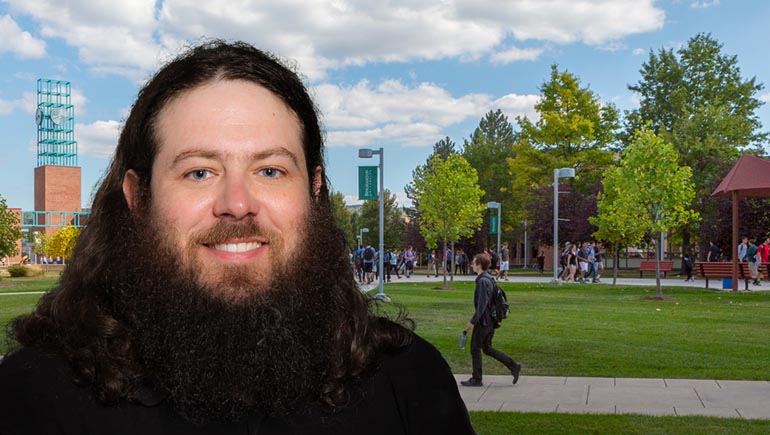Meet Jeremy Blackburn: Assistant Professor, Computer Science
Research looks at aggression and cyberbullying on social media

Assistant Professor Jeremy Blackburn joined the Thomas J. Watson School of Engineering and Applied Science‘s Department of Computer Science in fall 2019.
Question: How did you first get interested in computer science?
Answer: I played a lot of video games. The first program I ever wrote was a game, and I learned to program in C++ by attempting to make a MUD (multi-user dungeon, an online text game). I may or may not have done more nefarious things, but I decline to comment further.
Q: What led you to studying aggression and cyberbullying on social media?
A: I played a lot of video games!
My PhD research at University of South Florida was about bad behavior in video games. For example, I made use of the Steam Community online social network of gamers to model cheating as a disease. The large-scale, empirical data that the digital world provides were able to help confirm some socio-psychological theories that had only been tested
through controlled lab experiments.
From there, I started exploring toxicity in competitive video games, League of Legends in particular. Video games are an entirely virtual phenomenon, and their competitive nature gives rise to a lot of less-than-desirable behaviors.
Recently, as society has become increasingly online, we are seeing a lot of similar behaviors on social media in general.
Q: What games do you still play?
A: I’m a tenure-track assistant professor and a father of three young girls, which essentially has limited my time to mobile games, some Switch stuff here and there, and watching (but not playing) a lot of esports.
Q: What projects are you currently working on?
A: My group is currently working at the frontier of what we call weaponized information. More specifically, we are trying to measure, analyze and model various ways in which people use the internet to be jerks. This includes things like fake news, memes, racism and hate speech, online extremism and so on.
Q: What is your favorite part of Binghamton University so far?
A: The students are insanely smart.
